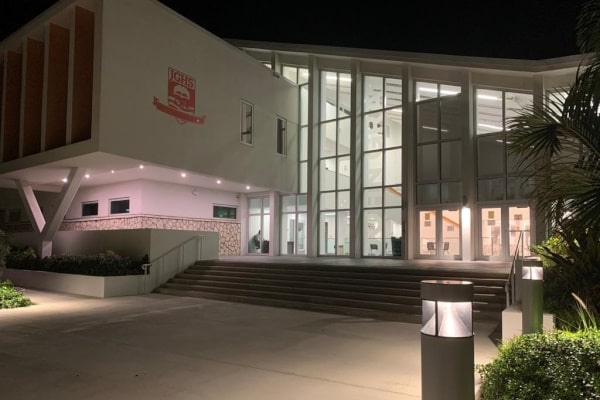[ad_1]

(CNS): A freedom of information request by local law firm HSM Chambers revealed that there are currently 866 non-Caymanian children in government schools. According to the statistics released by the Department of Education Services (DES), 689 of those students were admitted in the last three years. Around a quarter of all children admitted into the government system now are not Caymanian.
The largest group (301) is expatriate children of public sector workers, followed by children whose parents are here on work permits (113). Another 238 are dependents of permanent residents; 29 are non-Caymanian dependents of Caymanians; five are refugees or asylum seekers, and there are even three children whose parents came here under the Global Citizen Programme that was rolled out during the pandemic.
In his latest Viewpoint published on CNS this week, Nick Joseph, a partner with HSM and a leading immigration expert, used the statistics to illustrate the profound problems Cayman is now experiencing as a result of its failure to enforce immigration laws.
There is an estimated population of nearly 84,000 people, according to the most recent Labour Force Survey conducted by the Economic and Statistics Office this spring and published today, and the government education system is just one part of society now being impacted by the failing immigration system.
While the parents of non-Caymanian children are expected to pay, this is not always the case and the fees, ranging from $250 per term for primary-age children to $400 for students in high school, fall far short of the actual cost of the education provided.
The revelation of the increase in the number of expatriate children in government schools comes at a time when the system is overflowing and many schools are completely full up.
According to the latest information on the DES website, John Gray and Clifton Hunter High Schools are both completely full. Most primary schools have several year groups that are also full, especially Reception and Year 1, while at Prospect Primary, all of the year groups except for Year 4 are full. According to the FOI release, 40 Caymanian children who should have been enrolled this academic year did not get a place.
In his Viewpoint, Joseph pointed out that for the first time, Caymanian children are being denied access to school because there is no room. Some local parents have placed their kids in private schools, but others are now home-schooling. There is significant support for school reintegration so that expatriate and Caymanian children are educated together, which Joseph said was critical to help society in general. However, like many other people, he is concerned that this should not be happening at the expense of Caymanian children.
“That we appear unprepared to deal with the consequences of having so many children here is troubling,” Joseph said in his piece, noting that there we are still a year away from the “Covid Baby Boom” hitting our education system.
Joseph has been raising the alarm for several years now about a catalogue of issues surrounding immigration and the road to Caymanian status. He said that applicants seeking residency under the points system with children of school age are deemed to have CI$15,000 less income than they in fact have in order to take account of the cost of private education.
“The ability of any expatriate to ‘maintain themselves and their dependents’ remains described as ‘of paramount importance’ in the regulations concerning the grant of permanent residence,” Joseph said but noted that this is not uniformly followed as he raised the alarm about the failure to plan for this inevitability.
See the documents released to HSM under the FOI Act in the CNS Library.
[ad_2]
Source link

